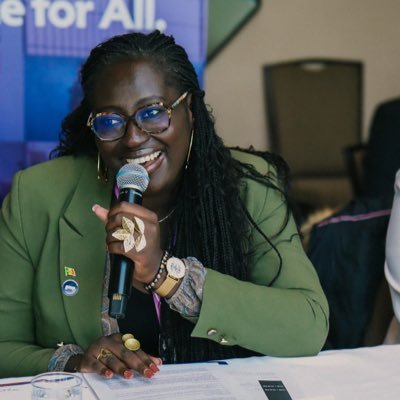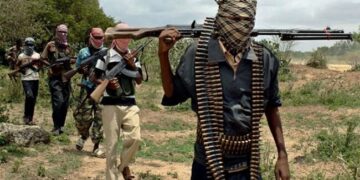Newly appointed African Union Youth Ambassador for Peace for West Africa, Ms Simone Diouf, has called for unwavering support and the integration of young individuals into the peace and security framework of Nigeria and West Africa.
The event held in Abuja and organised by Building Blocks for Peace Foundation (BBFORPEACE) in collaboration with the Global Partnership for the Prevention of Armed Conflict (GPPAC)- West Africa, focused on the theme, “Advancing Youth, Peace, and Security Agenda in West Africa”.
During the discussion, Ms Simone commended the federal government and the youth of Nigeria for being the first African country to adopt a National Action Plan on Youth, Peace, and Security (YPS). She emphasised the significance of the National Action Plan as it outlines the collaborative efforts between stakeholders and young people in addressing peace and security issues.
Simone highlighted that Nigeria’s National Action Plan on Youth, Peace, and Security, adopted in November 2021, is an essential document that reflects the African Union’s commitment to peace and security.
She emphasised the importance of its proper implementation by all stakeholders in addressing Nigeria’s current security challenges. She called for increased support from the government, civil society, and partners to ensure the plan’s successful implementation.
The gathering brought together more than 50 peace activists and civil society organisations across Nigeria. Its objective was to provide a platform for the Youth Ambassador to share her vision, priorities, and programs on youth and peacebuilding in West Africa. It also allowed young peacebuilders in Nigeria to express their expectations, concerns, and recommendations for advancing the Youth, Peace, and Security agenda in West Africa. The discussion highlighted the need for effective youth leadership in African peacebuilding and decision-making processes.
The executive director of Building Blocks for Peace Foundation, Mr Rafiu Lawal, stressed the importance of peace for Nigeria and urged citizens to protect the relative peace the country is currently experiencing.
He emphasised the need to support young people, who comprise 60% of the population, in their contributions to the peace process. Mr Lawal pointed out that challenges such as high unemployment rates and lack of trust, recognition, and support for young people hinder their potential contributions to the peace process. He also highlighted that investing in social services such as education, health, and water sanitation can help curb the rising rates of criminal activities like kidnapping, banditry, and terrorism in Nigeria.
Overall, the gathering aimed to foster collaboration and support for including young people in peace and security efforts in Nigeria and West Africa, recognising their crucial role in building a peaceful and secure future.





